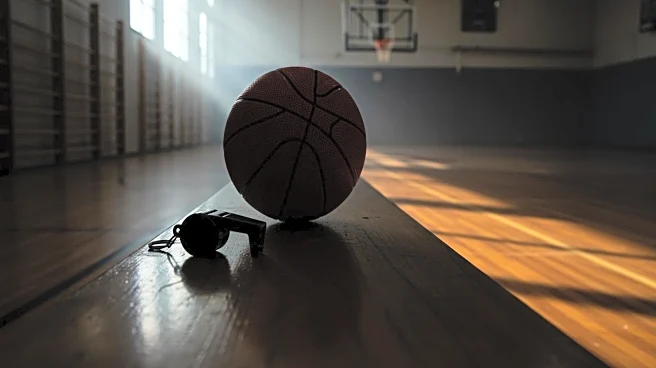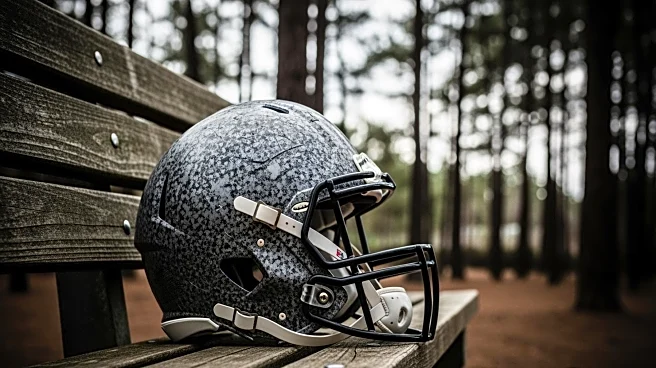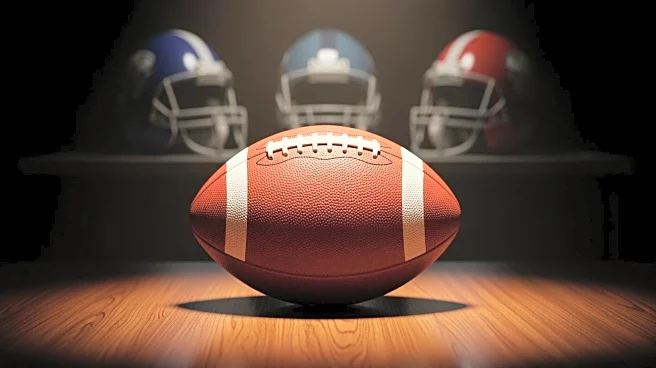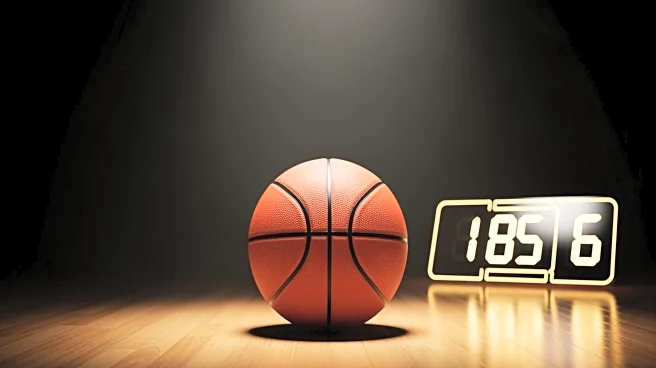What's Happening?
Keyshawn Wilder, a former standout defensive back for Shenandoah University and assistant coach, has passed away just weeks before the 2025 season opener. Wilder, who was deeply involved with the Shenandoah football program, was known for his dedication both on and off the field. The university announced his death on social media, expressing profound sadness and extending condolences to his family, friends, and the Shenandoah football community. Wilder was a Baltimore native and related to NFL star Ray Lewis, being his nephew. The cause of his death has not been disclosed.
Why It's Important?
The passing of Keyshawn Wilder is a significant loss for the Shenandoah University football program and the broader sports community. Wilder's influence as a player and coach was substantial, contributing to the development of future leaders within the team. His connection to Ray Lewis adds a layer of prominence to his legacy, highlighting the impact of familial ties in sports. The emotional and operational impact on the team as they prepare for the upcoming season is considerable, as they must navigate this loss while maintaining focus on their goals.
What's Next?
Shenandoah University is set to open its 2025 season against Methodist University on September 6. The team will likely honor Wilder's memory in some form during the season, potentially through tributes or dedications. The coaching staff and players will need to rally together to overcome the emotional challenges posed by his passing, focusing on team unity and resilience. The broader community may also engage in discussions about mental health and support systems for athletes and coaches.
Beyond the Headlines
Wilder's death may prompt deeper conversations about the pressures faced by athletes and coaches, especially those transitioning from playing to coaching roles. The sports community might explore the importance of support networks and mental health resources for individuals in high-pressure environments. Additionally, Wilder's familial connection to Ray Lewis could lead to reflections on the influence of sports legacies and the expectations placed on relatives of prominent athletes.









